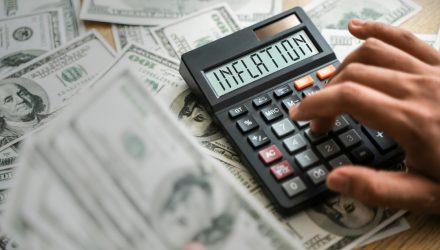The CBOE Volatility Index and VIX-related exchange traded funds surged Friday after new data revealed inflation accelerated to a four-decade high.
The iPath Series B S&P 500 VIX Short Term Futures ETN (NYSEArca: VXX) increased 2.4% and the ProShares VIX Short-Term Futures ETF (NYSEArca: VIXY) advanced 6.2% on Friday. Meanwhile, the CBOE Volatility Index jumped 8.6% to around 28.3.
Meanwhile, the S&P 500 was down 2.5% on Friday, with all 11 of the major sectors in the red.
U.S. markets retreated after the Labor Department revealed that the consumer-price index advanced 8.6% in May, the fastest pace since December 1981, the Wall Street Journal reported.
“It was pretty hot. This report suggests that underlying inflation pressures remain quite strong,” Aichi Amemiya, senior U.S. economist at Nomura, told Reuters.
A number of factors, including higher fuel prices, supply-chain problems from Russia’s war in Ukraine, along with lockdowns related to China’s zero-tolerance COVID-19 strategy, have exacerbated inflationary pressures.
“Given everything from the implications of the Russian invasion of Ukraine, the Chinese lockdowns and just the sheer appetite for travel… What we’ve seen is the perfect storm of those factors hitting, along with some major refinery closures,” Sarah House, senior economist at Wells Fargo Securities, told the WSJ.
The elevated inflation levels added more uncertainty over the next course of action that the Federal Reserve will take. Fed officials have already evinced their intent to combat rising consumer prices, and the worse than expected outcome has caused many to anticipate the central bank could take even more aggressive action.
“The wagering on September had been 50-50 between a 25 basis points to a 50 basis points hike, and now this has definitely shifted to 50 basis points,” Art Hogan, chief market strategist at National Securities, told Reuters.
Investors anticipate the Fed to continue to raise rates by 50 basis points next week and in July. Some have even warned that the Fed could consider a 75 basis point hike.
“[W]e think the US central bank now has good reason to surprise markets by hiking more aggressively.” Still, “we realize it is a close call and that it could play out in either June or July,” Barclays economists said in a note after the release of the consumer-price index for May.
For more news, information, and strategy, visit VettaFi.
